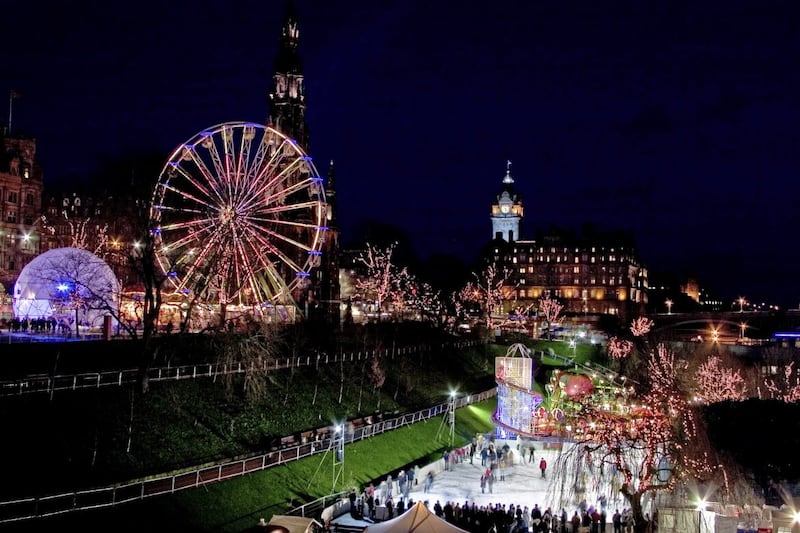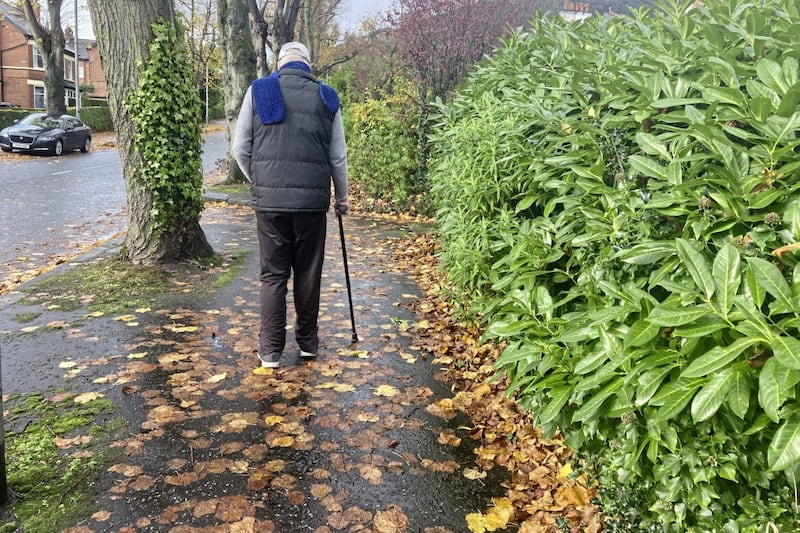TEN years ago during a writer’s weekend in The Burren a young man sat and talked with me about his desire to become a writer. It was obvious when we met that Declan Henry had a dedication about his work and now, in 2020, he has published his seventh book, which has been described as explosive.
Forbidden Fruit: Life & Catholicism In Contemporary Ireland is a disturbing examination of the Irish Catholic Church, which he claims is crumbling. However, it is not a spiteful attack on the Church – rather, he pulls aside a curtain to look into the situation.
“The clerical abuse scandals of the 90s sparked this irreparable demise which continues to disintegrate at an alarming rate,” he says.
To back this, Declan has interviewed 30 priests about their faith and their attitudes, especially towards homosexuality.
Born in Co Sligo in the early 80s and now living in England, Declan says his life was moulded by Catholicism but, as he put it, lives have changed radically in the past 30 years, with everything becoming fluid.
“For example secularism, clerical-sex-abuse scandals and disagreement with Church teaching which seems out of touch, especially on issues like homosexuality, divorce, remarriage and same-sex marriages," he says.
"Although up to a million people in Ireland still go to Mass every week, most churches are only a third full. The main attendees are middle-aged and elderly people who remain trapped by the old indoctrination – fear-based teachings, fearful of dying in sin and not going to heaven.
"Young people have grown up with negative media reporting about paedophile priests and the horrors of clerical child abuse resulting in them turning away from the institutional church.”
:: Putting it in context
Declan points out that 88 per cent of all child abuse, whether physical, emotion or sexual, is committed within families. Ireland, he maintains, is historically a violent society; abuse and violence are not unrelated and sexual oppression and frustration led to unspoken acts of evil.
Concentrating on the priesthood, he spoke to many about their faith, dealing with life in a secular society, their own doubts and misgivings. And they have been remarkably honest with the author.
He discusses the possibility of women priests, interviews a married priest and talks in depth about the pressures they experience.
Fr Brendan lives in Dublin and is in his early 60s. His parish has seen 20 gang-fuelled murders in the past decade and he presided over many funeral Masses when the killer was known to be present.
An openly gay priest in another Dublin parish came out to his congregation during the time of the same-sex referendum in 2015; he told people that he would be voting Yes because he was gay himself. He made it clear, in case anybody had any confusion in the aftermath of the clerical sex-abuse scandals, that he had no interest in children and he was given widespread support within his congregation.
“However, the bishop summoned him for a meeting to be reprimanded like a naughty schoolchild!"
Fr John was adamant that the Church wouldn’t differentiate between heterosexual and homosexual priests because all that mattered was that the priest remain celibate. Fr Chris, on the other hand, was quite clear that he doesn’t like the idea of homosexuals being in the priesthood.
“I cited the high statistics to him which suggest many Catholic priests are gay but after shaking his head, he responded by saying he doesn’t believe them.”
Declan adds: "The former Pope Benedict said in his 2008 Christmas message that saving humanity from homosexual or transsexual behaviour was just as important as saving the rainforest from destruction.
"During his pontificate the Vatican called homosexuality ‘a deviation, an irregularity, a wound’. However, during my research I discovered a piece of wisdom from him written long before he became pope. While it is deeply theological in tone, its irony will not be lost on the LGBT community when he discusses how a person has to encounter love before they encounter morality, and then he asks the question: 'Why or what is an individual to like if he does not like himself?’
"Is this not a question that every gay priest who battles internalised homophobia should be asking themselves?”
Declan met several liberal priests who hold the view in their ministry that every person is equal in the eyes of God.
:: Fr Kevin expressed this succinctly
"It doesn’t matter if somebody is homosexual because God still loves them. If they are in a sexual relationship God still loves them. If they try to stop God still loves them. What if they can’t stop? God still loves them."
In his chapter Paedophile Priests, Declan Henry suggests that clerical sex abuse is far less widespread than the headlines suggest. However, he writes, over a 20-year period more than 1,000 Irish priests have been accused of sexual offences against children.
“Nearly a hundred of these have been convicted and imprisoned for paedophilic acts with young boys and adolescents. Brendan Smyth was the first clerical abuse scandal to come to public prominence in the 1990s, eventually revealing that over a period of 40 years the Belfast-born priest had abused up to 200 children.
"I have personally seen through my social-work career the horrific long-term emotional damage that sexual abuse causes to individuals. In a metaphorical sense, something dies in the person’s heart and shuts them down.”
:: But he ends on a note of hope
“What has happened to the Irish Church has happened and cannot be undone. There is no turning back. Rather we should look towards the future with enthusiasm and belief that the Irish Church can rebirth itself into something new and profoundly magnificent.
"I believe the best is yet to come and I am grateful that I am still young enough to see it become a reality one day."
:: Details of Declan’s books at declanhenry.co.uk










